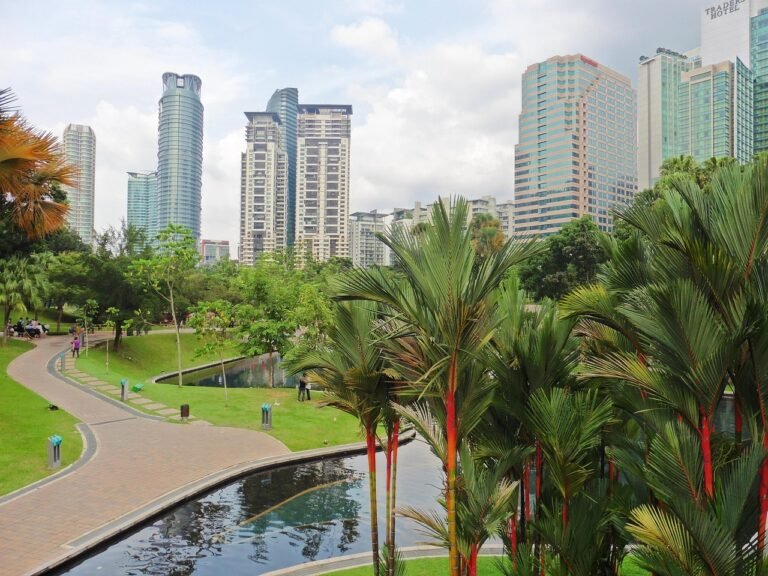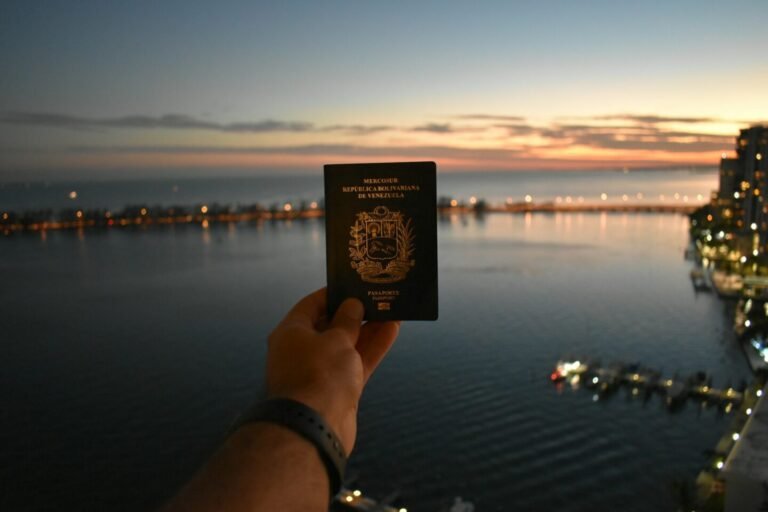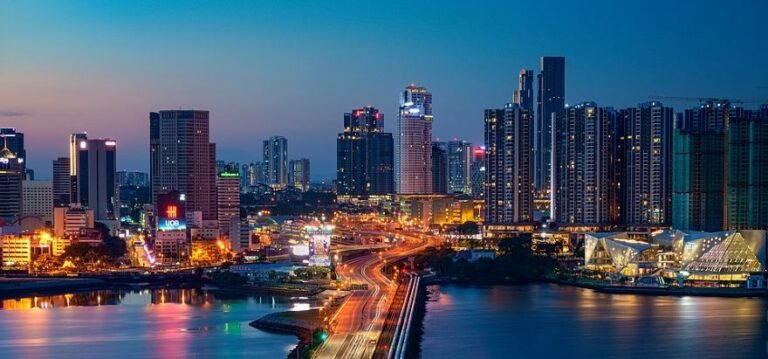Complete 2025 Guide: Buying Property in Malaysia as a Foreigner (Step-by-Step)
Yes, foreigners can buy property in Malaysia, but under specific conditions that have evolved in 2025. The minimum purchase threshold is generally set at RM1 million (approximately USD 225,000), with significant variations by state: up to RM3 million in Penang or RM2 million in Selangor.
The complete process takes between 4 and 8 months and requires State Authority Consent. Budget for 5% to 7% additional costs on top of the purchase price, including the new 4% stamp duty for non-citizens introduced in 2024.
Malaysia remains one of the few Southeast Asian countries where foreigners can acquire freehold property, making it a preferred destination for investors, expatriates, and future retirees.
This 2025 guide walks you through this process step-by-step, from eligibility conditions to post-purchase tax obligations.
2025 Eligibility: Key Conditions for Foreigners {#eligibility}
Foreign purchase rules have been clarified and sometimes tightened in 2025. Each Malaysian state controls foreign property purchases through minimum price thresholds that vary between RM1 million and RM3 million, protecting the local market while attracting qualified investments.
Minimum Purchase Thresholds by State (2025 Update)
| State/Territory | General Minimum Threshold | MM2H Threshold | Special Remarks |
|---|---|---|---|
| Kuala Lumpur | RM 1,000,000 | RM 600,000 | National reference threshold |
| Selangor | RM 2,000,000 | RM 1,000,000 | Landed properties prohibited except strata |
| Penang (Island) | RM 3,000,000 | RM 1,000,000 | Reinforced restrictions on landed |
| Penang (Mainland) | RM 1,000,000 | RM 600,000 | More accessible than island |
| Johor | RM 1,000,000 | RM 600,000 | Singapore proximity = high demand |
| Sarawak & Sabah | RM 500,000 – 750,000 | RM 300,000 | More flexible policies |
Important: Special zones like Medini (Johor) allow foreigners to purchase at any price set by the developer, without the RM1 million restriction.
Permitted and Prohibited Property Types
✅ Permitted Properties:
- All “strata” properties: apartments, condominiums, duplexes
- “Landed” properties in certain states: houses, bungalows, villas (with authorization)
- Commercial and industrial properties (under PVIP)
❌ Absolute Restrictions:
- Properties below the state’s minimum threshold
- “Malay Reserved” land exclusively reserved for Malays
- “Low-cost” and “medium-cost” housing for local citizens
- Properties allocated to Bumiputera interests in development projects
- Agricultural land (except development with special authorization)
Revised MM2H Programme 2025
The Malaysia My Second Home (MM2H) programme has been completely revamped with a three-tier system: silver, gold, and platinum. It is now mandatory to purchase property and hold it for at least 10 years.
MM2H Advantages for Property Purchase:
- Reduced purchase thresholds in most states
- Bank financing up to 80% (vs 60-70% for non-holders)
- Renewable 10-year visa with multiple entries
- Mandatory residence: 90 cumulative days per year
New PVIP (Premium Visa Programme)
Launched in September 2022, PVIP offers a long-term residence visa for up to 20 years (renewable in 5-year tranches) allowing foreign investors to live, work, or study in Malaysia. This programme expands purchase possibilities for residential, commercial, or industrial purposes.
The 10-Step Purchase Process {#process}
The purchase process follows a well-structured timeline with precise legal steps, from the letter of intent to key handover. The Malaysian specificity lies in State Authority Consent, a crucial step that can take 3 to 6 months.
Steps 1-3: Preparation and Research
Step 1: Define Budget and Financing
- Calculate your total budget including 5-7% additional costs
- If necessary, obtain a bank pre-approval for financing up to 60-70% of the price
Step 2: Property Search and Selection
- Engage a local real estate agent specialized in foreign sales
- Verify the property meets your target state’s minimum thresholds
- Visit physically or arrange a detailed virtual tour
Step 3: Letter of Offer
- Submit a formal offer with 1% to 3% deposit of the price
- This document binds both parties during contract preparation
- Typical timeframe: 7 to 14 days for seller response
Steps 4-6: Contracting and Deposits
Step 4: Engaging a Specialized Lawyer Crucial: It is mandatory to engage your own lawyer (separate from the seller’s) to protect your interests and verify property title legality.
Step 5: SPA Signature (Sale and Purchase Agreement)
- Official sales contract signed within 14 to 21 days of acceptance
- Payment of deposit balance to reach 10% of total price
- Legally binding document defining all sale terms
Step 6: SPA Registration and Stamping
- Payment of stamp duty at fixed rate of 4% for non-citizens since Budget 2024
- Official legalization of contract by tax authorities
Steps 7-10: Authorizations and Completion
Step 7: State Authority Consent Application
- Critical timeframe: 3 to 6 months depending on state and case complexity
- Your lawyer submits all required documents
- No additional payments possible before this authorization
Step 8: Financing Completion
- Once authorization obtained, bank releases funds (if loan)
- Payment of remaining 90% within typically 3 months
- Coordination between lawyer, bank, and developer/seller
Step 9: Memorandum of Transfer (MOT)
- Official property transfer document to your name
- Second stamp duty (higher) on total property value
- Registration with state land registries
Step 10: Key Handover (Vacant Possession)
- Final inspection of property with your lawyer
- Receipt of keys and ownership documents
- You are officially the owner!
Budget and Financing: All Costs to Consider {#budget}
Beyond the purchase price, additional costs represent approximately 5% to 7% of the property value. The main 2025 novelty concerns increased stamp duty for foreigners.
Stamp Duty Calculation (New 4% Rate for 2025)
The government announced in Budget 2024 that a fixed stamp duty rate of 4% will be imposed on property transfers by non-citizen individuals and foreign companies.
Concrete Example for RM1,500,000 Property:
- Stamp duty: RM60,000 (4% x 1,500,000)
- Significant impact compared to the previous tiered system
Previous System (for reference):
- 1% on first RM100,000
- 2% on next RM400,000
- 3% on next RM500,000
- 4% on remainder
Legal and Administrative Fees
Legal Fees:
- 0.5% to 1% of purchase price according to regulated scale
- Includes: title verification, contract drafting, authorization follow-up
Other Mandatory Fees:
- Valuation fees (if loan): ~0.25% of property value
- Bank processing fees: RM2,000 to RM5,000
- State authorization: RM500 to RM2,000 depending on state
- Real estate agency fees: generally paid by seller
Complete Simulation – RM1,500,000 Property:
| Expense Item | Amount (RM) | Percentage |
|---|---|---|
| Purchase price | 1,500,000 | 100% |
| Stamp duty (4%) | 60,000 | 4% |
| Legal fees | 10,000 | 0.67% |
| Valuation fees | 3,750 | 0.25% |
| Other fees | 2,000 | 0.13% |
| TOTAL | 1,575,750 | 105.05% |
Financing Options for Foreigners
Local Bank Loans:
- MM2H holders: up to 80% financing, non-MM2H: approximately 50% to 70%
- Maximum duration: 30 years (age limit: 70 years at loan end)
- Required documents: income proof, bank statements, passport
- Interest rates: variable according to profile and bank
Recommended Banks for Foreigners:
- Maybank, CIMB Bank, Public Bank
- Hong Leong Bank, RHB Bank
Financing Alternatives:
- International financing from your country of residence
- Cash payment (often negotiated with discounts)
- Developer financing for new properties (rare)
After Purchase: Obligations and Opportunities {#after-purchase}
Becoming a property owner in Malaysia involves moderate annual tax responsibilities and interesting appreciation opportunities. The dynamic rental market allows returns of 3% to 5% depending on areas.
Mandatory Annual Taxes
Quit Rent (Cukai Tanah) – Land Tax:
- Amount: very modest, a few dozen RM per year
- Payable: to state Land Office
- Function: recognition of land usage rights
Assessment Rates (Cukai Pintu) – Municipal Tax:
- Amount: varies according to rental value and municipal services
- Frequency: biannual or annual depending on municipality
- Covers: waste collection, street lighting, road maintenance
Example for RM1.5M condominium in KL:
- Quit Rent: ~RM50/year
- Assessment Rates: ~RM1,200/year
- Total annual taxes: ~RM1,250
Capital Gains Tax (RPGT)
Real Property Gains Tax (RPGT) applies upon resale, with differentiated rates according to residence status and holding period.
RPGT Rates for Foreigners (Non-Residents):
- Years 1-5: 30% on capital gains
- From 6th year onwards: 10% on capital gains
- Permanent residents: 0% to 25% according to tax brackets
Capital Gains Calculation: Capital gains = Sale price – (Purchase price + Improvement costs + Sale costs)
Examples of Deductible Expenses:
- Documented renovations and improvements
- Legal fees for sale
- Agency commissions
- Advertising costs
Rental Management and Returns
Rental Potential by Area:
- Kuala Lumpur Center: 3% to 4% annual return
- Penang (Georgetown): 3.5% to 5%
- Johor Bahru: 4% to 6% (Singapore proximity)
- Sabah/Sarawak: 5% to 7% (emerging markets)
Rental Tax Optimization:
- Mandatory declaration of rental income in Malaysia
- Possible deductions: condominium charges, repairs, insurance
- Local agency management: 8% to 10% of rent
Recommended Services:
- Complete rental management by specialized agency
- Non-occupant owner insurance
- Preventive maintenance for long-term appreciation
For personalized consultation on your investment project, feel free to contact us. Our local experts accompany you through every step.
FAQ {#faq}
Can I buy multiple properties in Malaysia as a foreigner?
No existing law limits the number of properties a foreigner can own in Malaysia. You can build a complete real estate portfolio, provided you respect minimum thresholds for each purchase.
Is the MM2H programme mandatory for purchasing?
No, MM2H is not mandatory but highly advantageous. It reduces purchase thresholds and facilitates obtaining bank financing up to 80% instead of 60-70%.
How long can I stay in Malaysia with my property?
Property ownership alone does not grant residence rights. You must have an appropriate visa (tourist, MM2H, PVIP, or work visa) according to your stay duration.
What documents should I prepare from my home country?
Prepare your passport, translated and apostilled income justifications, bank statements from the last 6 months, and a bank recommendation letter.
Can I resell immediately after purchase?
Technically yes, but the 30% RPGT on capital gains during the first 5 years makes this strategy unprofitable. The MM2H programme even imposes a minimum 10-year holding period.
Conclusion
Property purchase in Malaysia for foreigners in 2025 remains accessible and secure, despite stricter conditions. New purchase thresholds and 4% stamp duty aim to protect the local market while attracting qualified investments.
The key to success lies in meticulous preparation: understanding specific rules of your chosen state, budgeting all costs, and surrounding yourself with competent local professionals.
The Malaysian market offers unique opportunities in Southeast Asia: freehold ownership, political stability, sustained economic growth, and high quality of life. For patient investors, medium-term appreciation prospects remain promising.
Your next step? Define your budget, choose your target area, and consult a local expert to validate your project’s feasibility.
Key Points to Remember
• Minimum threshold: RM1 million to RM3 million depending on state • Total duration: 4 to 8 months complete process • Additional costs: 5% to 7% of purchase price • 2025 stamp duty: 4% fixed for non-citizens • Financing possible: 60-70% of price (80% with MM2H) • State authorization: mandatory 3-6 month step • Lawyer mandatory: essential for secure purchase • RPGT: 30% on capital gains (first 5 years) • Freehold property: possible in Malaysia (rare in Asia) • No limit: unlimited number of properties for foreigners
Sources and References
Official Sources:
- MM2H Programme – Ministry of Tourism, Arts and Culture
- National Property Information Centre (NAPIC) – Official real estate market data
- iProperty Malaysia – Market guides and analysis
- PropertyGuru Malaysia – Expert trends and advice
Legislation:
- National Land Code (NLC) 1965 – Main legal framework
- Housing Development (Control And Licensing) Regulations – Developer rules
Market Analysis:
- Trading Economics Malaysia Housing Index
- Budget 2024 – Real estate tax measures







